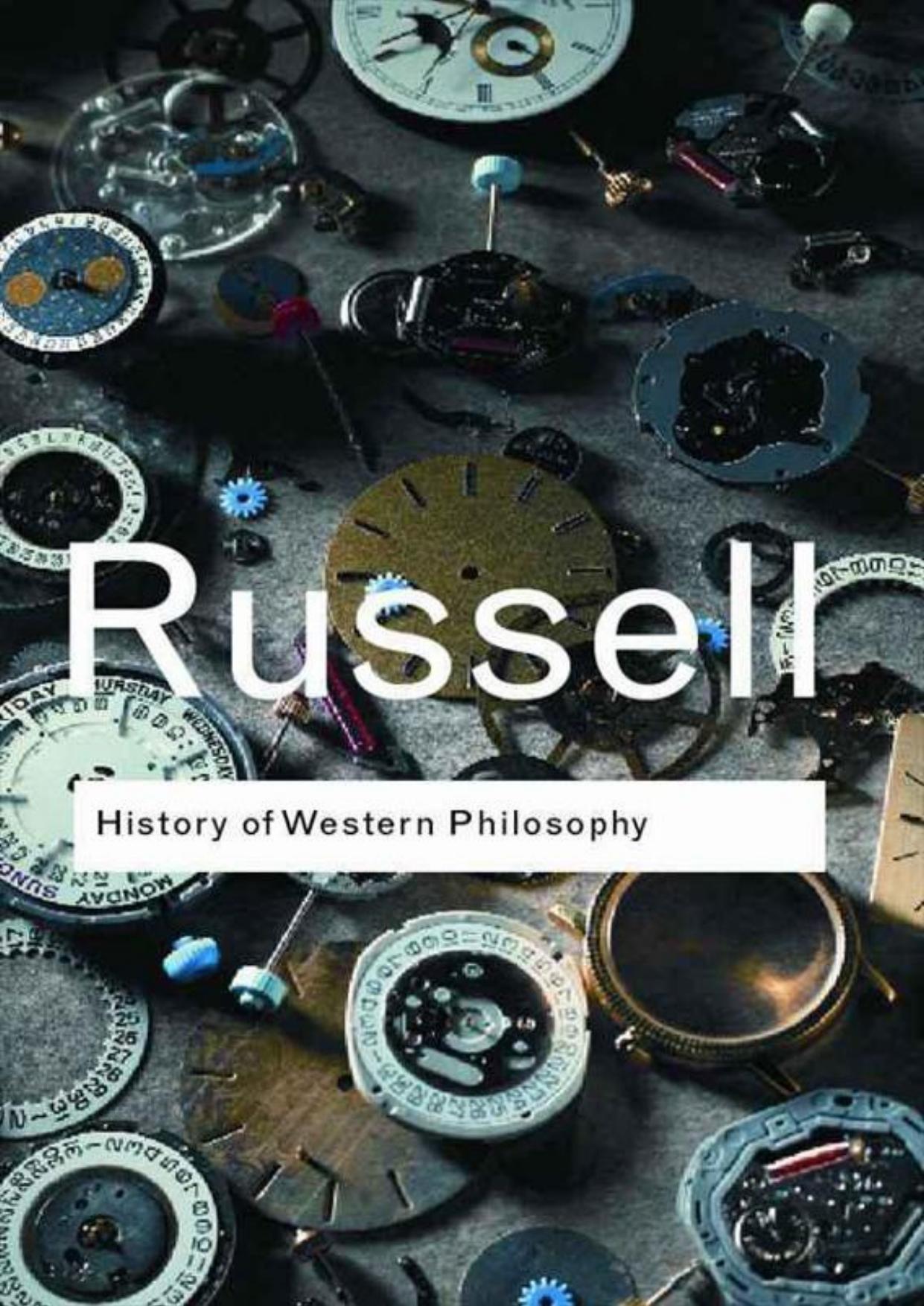History of Western Philosophy (Routledge Classics) by Russell Bertrand

Author:Russell, Bertrand [Russell, Bertrand]
Language: eng
Format: mobi, epub, pdf
Tags: Humanities
Publisher: Pocket Books
Published: 2013-11-28T00:00:00+00:00
* * *
13
ST THOMAS AQUINAS
Thomas Aquinas (b. 1225 or 1226, d. 1274) is regarded as the greatest of scholastic philosophers. In all Catholic educational institutions that teach philosophy his system has to be taught as the only right one; this has been the rule since a rescript of 1879 by Leo XIII. St Thomas, therefore, is not only of historical interest, but is a living influence, like Plato, Aristotle, Kant, and Hegel—more, in fact, than the latter two. In most respects, he follows Aristotle so closely that the Stagyrite has, among Catholics, almost the authority of one of the Fathers; to criticize him in matters of pure philosophy has come to be thought almost impious.1 This was not always the case. In the time of Aquinas, the battle for Aristotle, as against Plato, still had to be fought. The influence of Aquinas secured the victory until the Renaissance; then Plato, who became better known than in the Middle Ages, again acquired supremacy in the opinion of most philosophers. In the seventeenth century, it was possible to be orthodox and a Cartesian; Malebranche, though a priest, was never censured. But in our day such freedoms are a thing of the past; Catholic ecclesiastics must accept St Thomas if they concern themselves with philosophy.
St Thomas was the son of the Count of Aquino, whose castle, in the kingdom of Naples, was close to Monte Cassino, where the education of the 'angelic doctor' began. He was for six years at Frederick II's university of Naples; then he became a Dominican and went to Cologne, to study under Albertus Magnus, who was the leading Aristotelian among the philosophers of the time. After a period in Cologne and Paris, he returned to Italy in 1259, where he spent the rest of his life except for the three years 1269–72. During these three years he was in Paris, where the Dominicans, on account of their
Aristotelianism, were in trouble with the university authorities, and were suspected of heretical sympathy with the Averroists, who had a powerful party in the university. The Averroists held, on the basis of their interpretation of Aristotle, that the soul, in so far as it is individual, is not immortal; immortality belongs only to the intellect, which is impersonal, and identical in different intellectual beings. When it was forcibly brought to their notice that this doctrine is contrary to the Catholic faith, they took refuge in the subterfuge of 'double truth'; one sort, based on reason, in philosophy, and another, based on revelation, in theology. All this brought Aristotle into bad odour, and St Thomas, in Paris, was concerned to undo the harm done by too close adherence to Arabian doctrines. In this he was singularly successful.
Aquinas, unlike his predecessors, had a really competent knowledge of Aristotle. His friend William of Moerbeke provided him with translations from the Greek, and he himself wrote commentaries. Until his time, men's notions of Aristotle had been obscured by Neoplatonic accretions. He, however, followed the genuine Aristotle, and disliked Platonism, even as it appears in St Augustine.
Download
History of Western Philosophy (Routledge Classics) by Russell Bertrand.epub
History of Western Philosophy (Routledge Classics) by Russell Bertrand.pdf
This site does not store any files on its server. We only index and link to content provided by other sites. Please contact the content providers to delete copyright contents if any and email us, we'll remove relevant links or contents immediately.
The remains of the day by Kazuo Ishiguro(8970)
Tools of Titans by Timothy Ferriss(8365)
Giovanni's Room by James Baldwin(7326)
The Black Swan by Nassim Nicholas Taleb(7106)
Inner Engineering: A Yogi's Guide to Joy by Sadhguru(6785)
The Way of Zen by Alan W. Watts(6600)
Asking the Right Questions: A Guide to Critical Thinking by M. Neil Browne & Stuart M. Keeley(5758)
The Power of Now: A Guide to Spiritual Enlightenment by Eckhart Tolle(5749)
The Six Wives Of Henry VIII (WOMEN IN HISTORY) by Fraser Antonia(5496)
Astrophysics for People in a Hurry by Neil DeGrasse Tyson(5182)
Housekeeping by Marilynne Robinson(4436)
12 Rules for Life by Jordan B. Peterson(4299)
Double Down (Diary of a Wimpy Kid Book 11) by Jeff Kinney(4261)
Ikigai by Héctor García & Francesc Miralles(4246)
The Ethical Slut by Janet W. Hardy(4242)
Skin in the Game by Nassim Nicholas Taleb(4237)
The Art of Happiness by The Dalai Lama(4125)
Skin in the Game: Hidden Asymmetries in Daily Life by Nassim Nicholas Taleb(3989)
Walking by Henry David Thoreau(3953)
